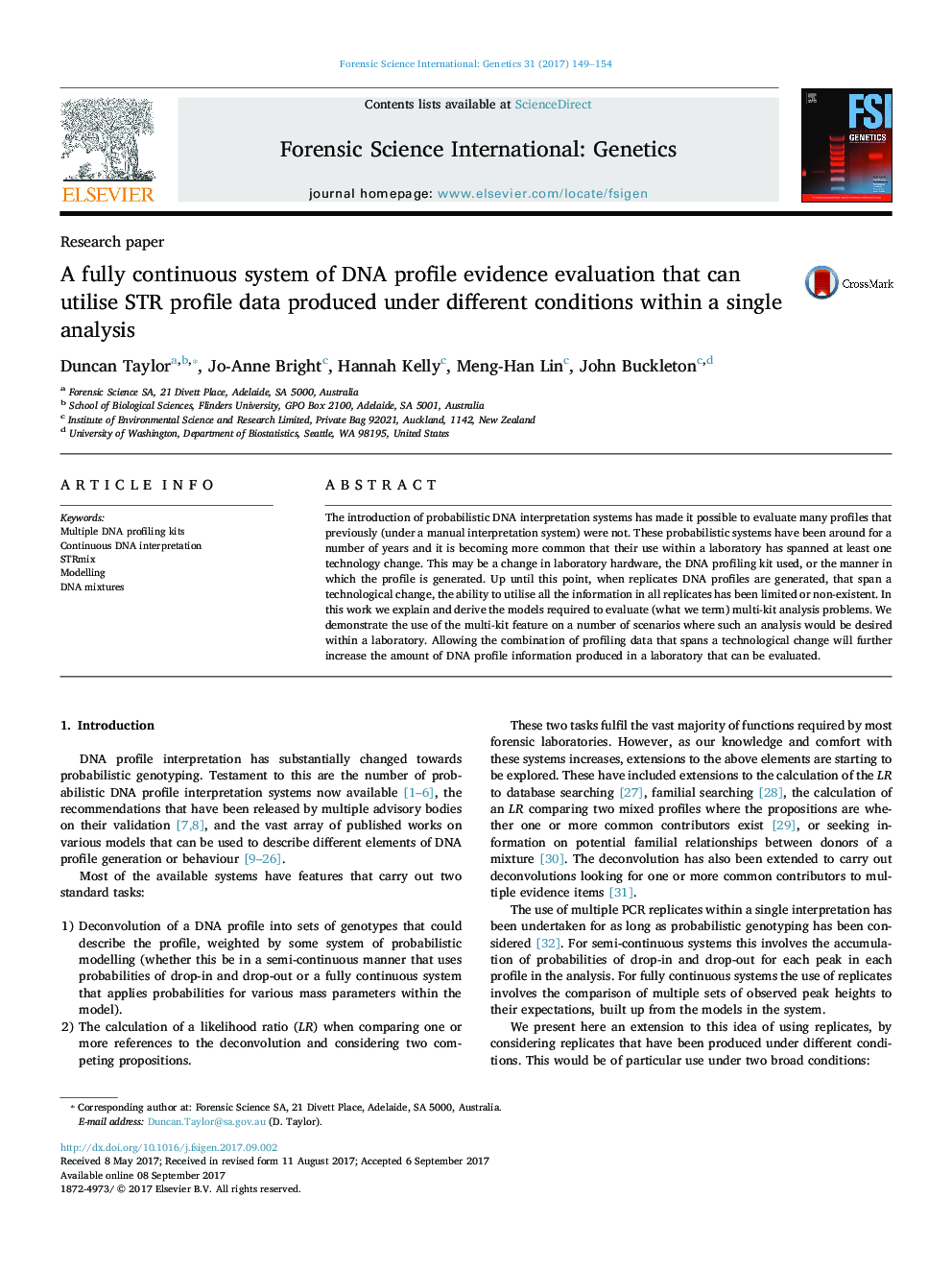| Article ID | Journal | Published Year | Pages | File Type |
|---|---|---|---|---|
| 6462693 | Forensic Science International: Genetics | 2017 | 6 Pages |
â¢We explain several casework situations that can arise which require evaluation of DNA profile replicates that span a technology change.â¢When a likelihood ratio is required for these types of evaluations, the classic approach has been to pick one of the replicates.â¢We present the maths for the interpretation system STRmix⢠to allow the combination of replicates produced under different conditions.â¢We demonstrate the performance of the proposed model on situations which may be encountered in the laboratory.
The introduction of probabilistic DNA interpretation systems has made it possible to evaluate many profiles that previously (under a manual interpretation system) were not. These probabilistic systems have been around for a number of years and it is becoming more common that their use within a laboratory has spanned at least one technology change. This may be a change in laboratory hardware, the DNA profiling kit used, or the manner in which the profile is generated. Up until this point, when replicates DNA profiles are generated, that span a technological change, the ability to utilise all the information in all replicates has been limited or non-existent. In this work we explain and derive the models required to evaluate (what we term) multi-kit analysis problems. We demonstrate the use of the multi-kit feature on a number of scenarios where such an analysis would be desired within a laboratory. Allowing the combination of profiling data that spans a technological change will further increase the amount of DNA profile information produced in a laboratory that can be evaluated.
